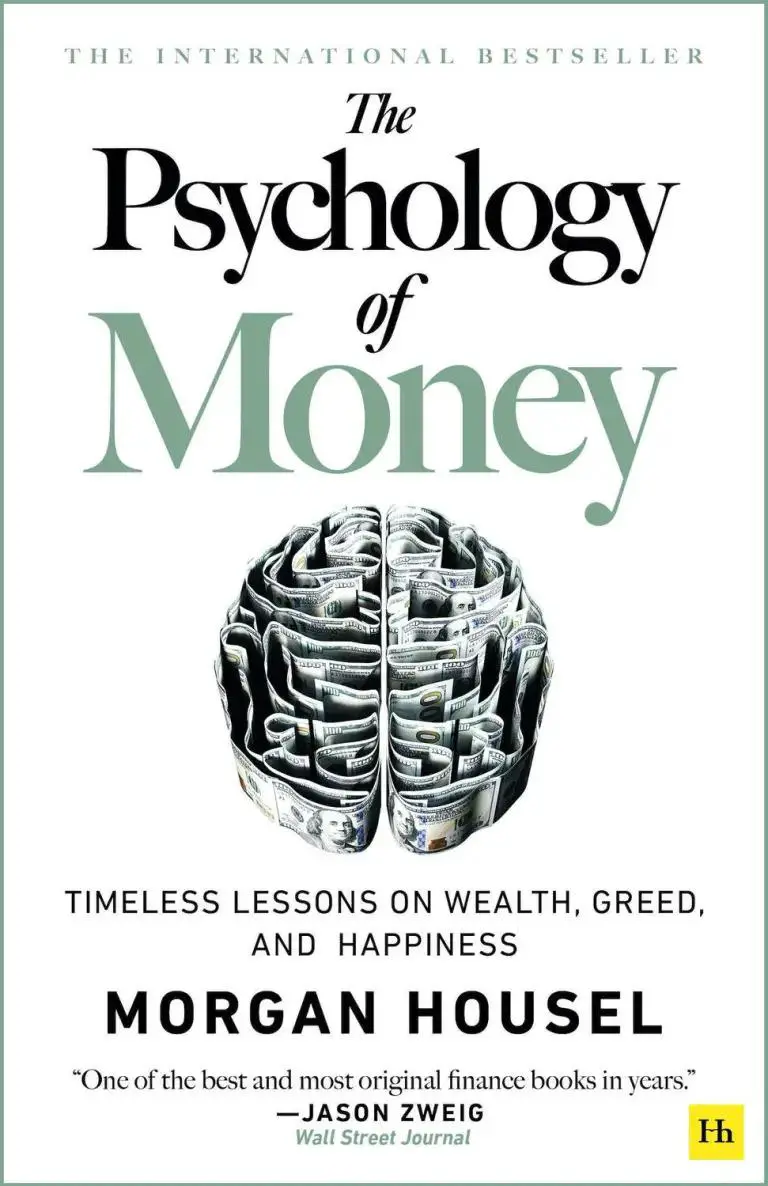The Psychology of Money by Morgan Housel is a remarkable book that explores the intricate relationship between human psychology and finance. Housel uses his experience as a financial journalist and investor to examine the many ways in which our emotions, biases, and beliefs influence our financial decisions.
One of the strengths of the book is Housel's ability to present complex financial concepts in a clear and accessible way. He uses real-world examples and anecdotes to illustrate his points, making the book engaging and relatable. This makes the book an excellent choice for both novice and experienced investors who want to gain a deeper understanding of the psychological factors that influence financial decision-making.
The book is divided into twenty chapters, each one focused on a specific aspect of the psychology of money. Housel starts by examining the role of luck in financial success, pointing out that while hard work and skill are important, luck also plays a significant role. He then goes on to explore other key concepts, such as the power of compounding, the dangers of overconfidence, the impact of social norms, and the importance of humility.
One of the key themes that runs throughout the book is the idea that our financial decisions are often irrational and emotional. Housel argues that our natural biases and cognitive shortcuts can lead us to make poor financial decisions. For example, we may be overly optimistic about our investment prospects or overly influenced by what others are doing. Housel highlights the importance of being aware of these biases and taking steps to mitigate their impact.
Another important theme of the book is the concept of "enough." Housel suggests that our obsession with accumulating wealth often comes at the expense of our happiness and well-being. He argues that it is important to recognize when we have reached a point of "enough," and to focus on the things that truly bring us fulfillment, such as relationships, experiences, and personal growth.
Throughout the book, Housel provides numerous practical tips and strategies for managing our finances and making better financial decisions. For example, he suggests that we should focus on the long-term and avoid making impulsive decisions based on short-term market fluctuations. He also emphasizes the importance of diversification and the need to avoid putting all of our eggs in one basket.
"The most important part of every plan is planning on your plan not going according to plan. It's like steering a ship. You set a course and, as long as you keep making small adjustments along the way, you'll get where you want to go. But you'll never be able to perfectly predict the weather, the currents, or the other ships on the water. No captain ever makes a straight line from one port to another. Adjustments are necessary. The biggest risk in investing is not that you'll fail to achieve your financial goals. It's that you'll become so scared of failure that you won't even try."
This passage encapsulates one of the central themes of the book, which is the importance of being prepared for the unexpected in our financial plans. Housel argues that while it's important to have a plan and set goals, it's equally important to be flexible and adapt to changing circumstances. He uses the metaphor of a ship navigating the ocean to illustrate this point, emphasizing that a captain must continually make small adjustments to reach their destination, even when unexpected obstacles arise.
The passage also highlights the risks of becoming too risk-averse in our financial decisions. Housel suggests that the biggest risk is not that we will fail to achieve our financial goals, but that we will be too afraid of failure to even try. This is a powerful reminder that taking risks is an essential part of investing and building wealth, and that we must be willing to accept the possibility of failure in order to achieve our financial goals.
"An entrepreneur is someone who jumps off a cliff and builds a plane on the way down. It's an insane amount of work, with no guarantee of success, but if you're doing something you love, it's worth it. The challenge is that most people are not wired to take that kind of risk. They are more comfortable with the security of a steady paycheck and the predictability of a 9-to-5 job. But the world is changing, and the traditional career path is no longer the only option. With the rise of technology and globalization, there are more opportunities than ever before for people to create their own businesses and chart their own course."
This passage emphasizes the changing nature of work and the increasing opportunities for entrepreneurship in today's world. Housel argues that while many people may feel more comfortable with the security of a traditional job, there are now more options than ever before for those who want to start their own businesses and pursue their passions. He acknowledges that entrepreneurship is not for everyone, but emphasizes the potential rewards of doing something you love and being your own boss.
The metaphor of jumping off a cliff and building a plane on the way down highlights the risks and uncertainty of entrepreneurship, but also emphasizes the need to be adaptable and creative in order to succeed. Housel suggests that those who are willing to take risks and think outside the box can create their own opportunities and find success in unexpected ways. This is a powerful reminder that the traditional career path is not the only option, and that there are many paths to success in today's world.
Overall, The Psychology of Money is an insightful and thought-provoking book that provides a valuable perspective on the complex interplay between psychology and finance. Housel's clear and engaging writing style, combined with his wealth of knowledge and experience, makes this book a must-read for anyone interested in personal finance and investing. By understanding the psychological factors that influence our financial decisions, we can make better choices, achieve greater financial security, and lead more fulfilling lives.





















0 Comments, latest
No comments.